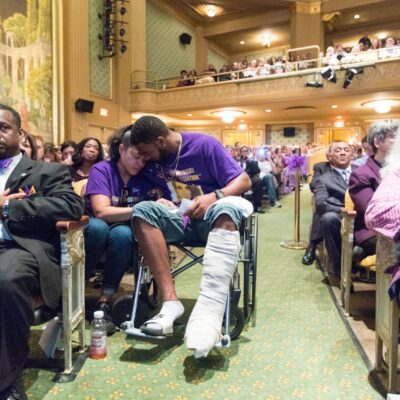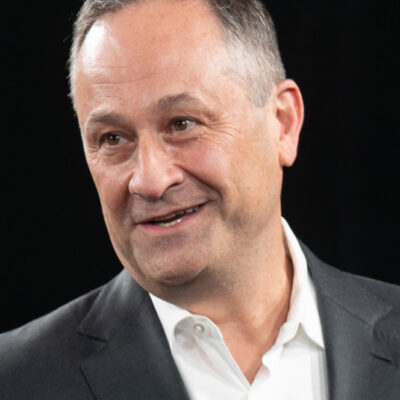 Thomas Skalak, UVA’s Vice President for Research since 2008, helped bring more than $30 million in grants to the school prior to his promotion. Now, the school may need to boost Skalak’s $275,000 annual salary to keep its lead innovator in town.
|
Days after California Polytechnic State University announced UVA Vice President for Research Thomas Skalak as one of three individuals under consideration for the school’s presidency, C-VILLE headed to UVA’s Neighborhood Advisory meeting with the hope of catching the biomedical engineering professor and presidential candidate.
“Tom Skalak will be easy to find,” said UVA Foundation CEO Tim Rose. “Just look for the tallest man in the room.”
At roughly 6’8", Skalak is a noticeable presence at UVA, and a conspicuous absence from any meeting. However, his departure would do more than eliminate the cricks in his colleagues’ necks; it would announce a potential change of course for what is, by its nature, UVA’s most ambitious office.
“We would hate to lose him, but we certainly understand we have become a place where people who are looking for presidents turn,” UVA Chief Operating Officer Leonard Sandridge told C-VILLE.
Skalak, scheduled to return to CalPoly on December 13 for an interview with the California State University (CSU) Board of Trustees, visited the school on Wednesday, December 1. According to the San Luis Obispo Tribune, Skalak took part in a public forum, where he shared a vision for collaborative innovation that would attract interest from domestic media companies and emerging foreign economies.
“Mr. Skalak is an extraordinary researcher in his own right,” said Sandridge. While the UVA COO said he had no further information about where Skalak stands with regards to the presidency, Sandridge said he felt certain Skalak will “be successful in whatever he undertakes.” Skalak did not respond to requests for comment.
The youngest person to serve as president of the National Biomedical Engineering Society, Skalak became the chair of the Department of Biomedical Engineering in 2001. He’s also central to UVA’s reputation as a burgeoning technology incubator. In 2006, the biomedical engineering department received a Wallace H. Coulter Foundation Translational Partners Award, valued at $2.9 million. Skalak, director of the UVA-Coulter Foundation Translational Research Partnership told UVA Today the award would help the school “create a new culture that accelerates biomedical technology transfer and commercialization.”
Three years later, Skalak—promoted to UVA’s Vice President for Research in 2008 —helped launch the UVA Venture Summit, which brings venture capitalists to Charlottesville to network with UVA researchers. The event reportedly attracted over $10 billion during each of the past two years; the third annual summit is slated for March 3-4.
By that time, however, Skalak may be settling into a new job. The CSU Board of Trustees is expected to announce its choice for president next week.





